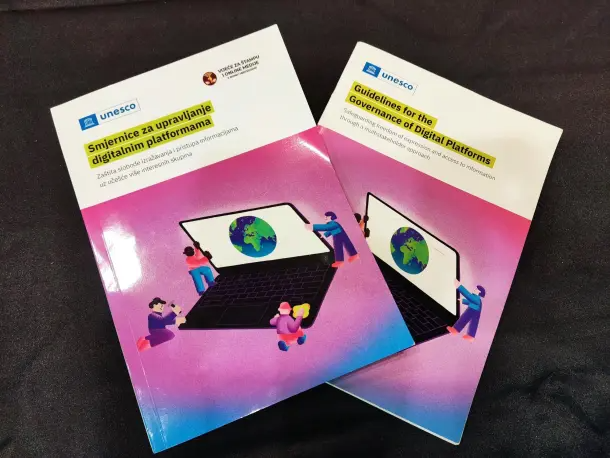The full article on this UNESCO was published on its website.
As happens in different parts of the world, digital platforms in South-East Europe have certainly improved people’s access to information. However, they are also responsible for an increasing spread of harmful content, such as disinformation and hate speech, through human and automated systems. This threatens democracy, fuels conflict, hinders peacebuilding processes and undermines people’s right to access verified information, which is essential for quality public debate. These issues are particularly relevant in the Western Balkans, where the media sectors are deeply polarised and struggling for viability as concerns about media independence and integrity continue to undermine the credibility of journalism.
Within the “International Conference on the Digital Platform Governance: Building a Global Forum of Networks”, held in Dubrovnik on the occasion of the International Day for Countering Hate Speech (18 June), the Croatian Agency for Electronic Media (AEM) organised a roundtable titled “Digital platform governance through a multi-stakeholder and human rights based approach”. Supported by UNESCO, within the EU-funded project “Building Trust in Media in South-East Europe: Support to Journalism as a Public Good”, the roundtable brought together media regulatory authorities from UNESCO Member States including Albania, Bosnia and Herzegovina, Montenegro, North Macedonia and Serbia to exchange views on the governance of digital platforms, through a human-rights and multi-stakeholder based approach.
In his opening remarks, Tawfiq Jelassi, UNESCO Assistant Director-General for Communication and Information, noted referring to freedom of expression and access to information, that these fundamental rights are not just abstract ideals; they are vital tools in countering hate speech and empowering the communities targeted by it. “Independent regulatory authorities from South-East Europe play a key role in the governance of digital platforms, in line with human rights standards and through a multi-stakeholder approach,” he stated.
